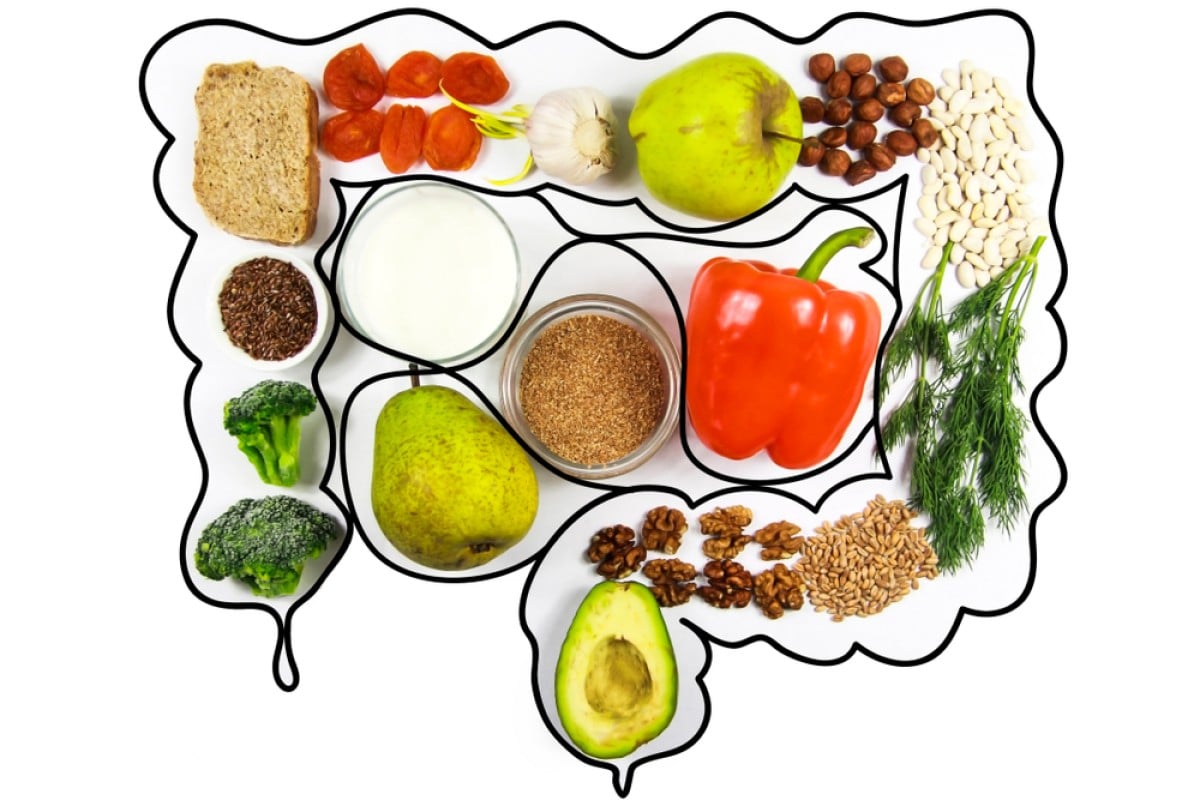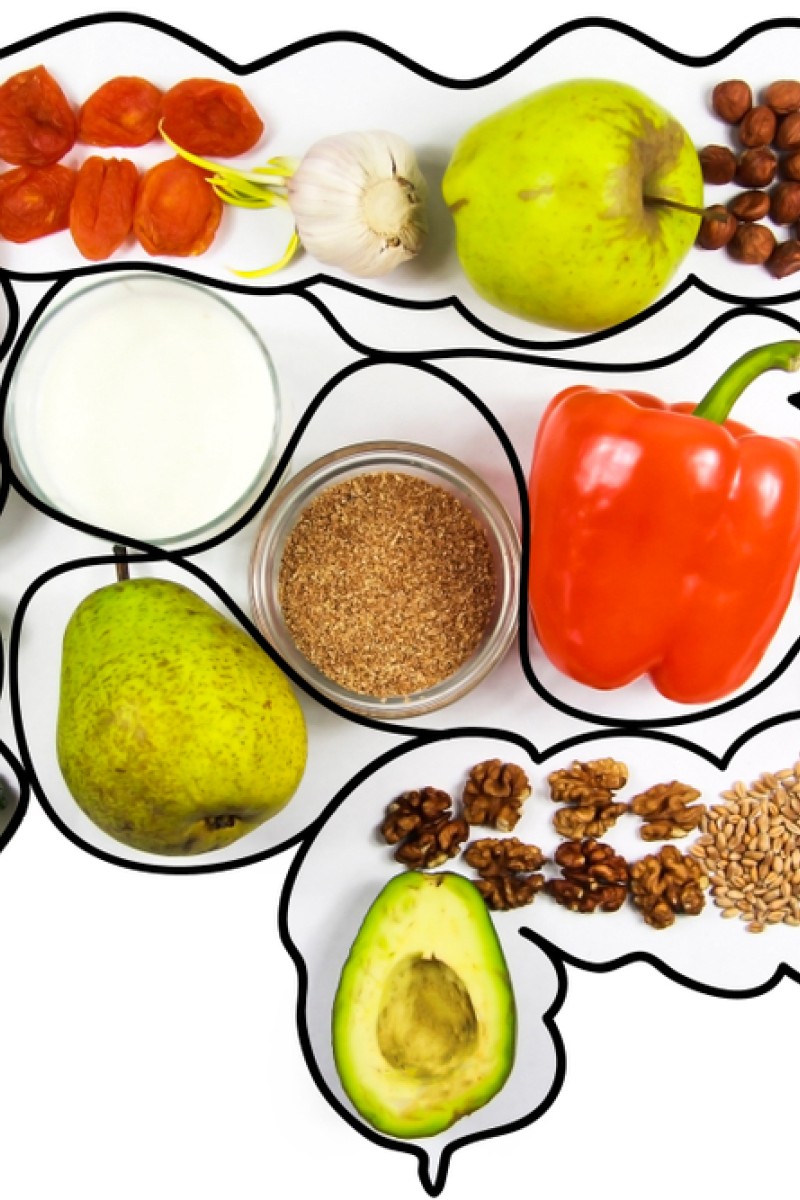 You only have one set of organs, so take good care of them with these diet tips.
You only have one set of organs, so take good care of them with these diet tips. Each year on World Digestive Health Day, the World Gastroenterology Organisation looks at a particular illness that affects our digestive health. This year, it is focusing on gastrointestinal (GI) cancers – cancers that happen in the digestive system. Four of the seven most common cancers affect this part of the body, according to the World Cancer Research Fund’s global cancer statistics for 2018.
For many years, diseases such as bowel cancer were thought to only affect old people. But a recent study in Europe, using data from more than 143 million people, found a rise in cases of bowel cancer between 1990 and 2016, with the biggest increase in people aged 20-29. Another study found a similar trend among young adults in wealthy countries like Britain and Australia.
What’s more, the latest figures (2016) from the Centre for Health Protection reveal that colorectal cancer – a cancer that occurs in the intestine nearest people’s bottoms – is the most common form of cancer in Hong Kong.
For at-risk groups – those aged above 50 or with a family history of bowel cancer – the best way to prevent bowel cancer is to get a screening test, says Dr Walter Seto Wai-kay, a gastroenterology expert at Hong Kong University.
“If you have parents or siblings [with bowel cancer], you should get checked 10 years before the age they were when they got the disease. Young people should also remind their parents to get screened.”
But there are ways of lowering the risk of bowel cancer while we’re still young, too. While we may not be able to change our family’s health history, we can try to have more healthy lifestyle habits. Dr Seto suggests making small changes, such as cutting down on red meat.
What’s more, by keeping our guts happy, we can make our brains happier, too.
In a recent South China Morning Post article, “How diet affects brain health and mood, and what to eat to reduce stress and feel good” (SCMP, May 10), nutritional scientist Camille Lassale, who works with the department of epidemiology and public health at University College London as well as the Hospital del Mar Medical Research Institute in Barcelona, Spain, said: “There is evidence that gut microbes can break down the nutrients we eat and create molecules that may … stimulate neural activity. They communicate with the gut and brain neurons and can influence behaviour.” Diet, Lassale says, is a key modulator of gut microbiota – communities of microorganisms found within our bodies.
Lassale says poor diet can influence mental health by causing damage to the brain. On the other hand, a diet rich in anti-inflammatory and antioxidant components, such as those found in oily fish, fruit, vegetables, and nuts, can affect the brain by protecting it from stress and inflammation.
With all this in mind, here are five things you should eat to keep your digestive system happy.
Kimchi
Although fermented foods have existed in many cultures for thousands of years, they have only recently begun to get the recognition they deserve. In a May 2018 article on the Harvard Health Blog, Dr David Ludwig said fermented foods “can give your body a dose of healthy probiotics, which are live microorganisms crucial to healthy digestion”. They contain bacteria called probiotics, which improve our digestion and help protect our bodies against bacteria that may make us ill.
Good choices of probiotic-rich foods include kimchi, miso, sauerkraut (German pickled cabbage), some yogurts, kombucha, and a drink called kefir, which is like a very runny yogurt.
Brown rice
White rice may be the basis of many Hong Kong meals, but because its outside “coating” – the bran and the germ – has been removed, it is quite low in fibre. Fibre is essential for your digestive system. It helps food move through your intestines (so you can poo easily), but it also feeds the good bacteria in your gut – the ones that aid digestion, reduce inflammation, and help your body fight off diseases. Brown rice still has this coating, so it’s much higher in fibre. Other grainy goodness can be found in oatmeal and whole grain bread.
Gai lan
Again: fibre! Your intestines don’t work very well without it, so make sure your meals include leafy, green vegetables like gai lan, spinach, and broccoli, as well as beans like chick peas and lentils. Fruit – both fresh, like apples and bananas, and dried, like raisins and prunes – is another good source of fibre. Finally, drink plenty of water, as it helps the fibre pass through your system.
Lean meat and fish
Many types of fat are hard to digest, so as tasty as French fries are, or as much as you might love your grandma’s siu yuk, it’s best to save these fatty foods for special occasions. Dr Linda Lee, of Johns Hopkins University in the US, wrote in a post for the Hopkins Medicine website that high-fat foods can trigger contractions in the colon – which can cause discomfort.
“Red meat also promotes colon bacteria that produce chemicals associated with an increased risk of clogging the arteries.” It’s better to stick to lean proteins, such as fish and poultry.
Avocado
The millennials’ favourite toast topping is also very good for your gut. Avocados are high in fibre, and other nutrients, such as potassium, which are good for digestion. But, as Lee wrote in her post, they have a lot of fat, so don’t eat them too often.
Edited by Charlotte Ames-Ettridge
You might also like:
Five foods that will boost your health and make you happy
The top 7 vegetarian and vegan restaurants to try in Hong Kong on World Vegetarian Day

